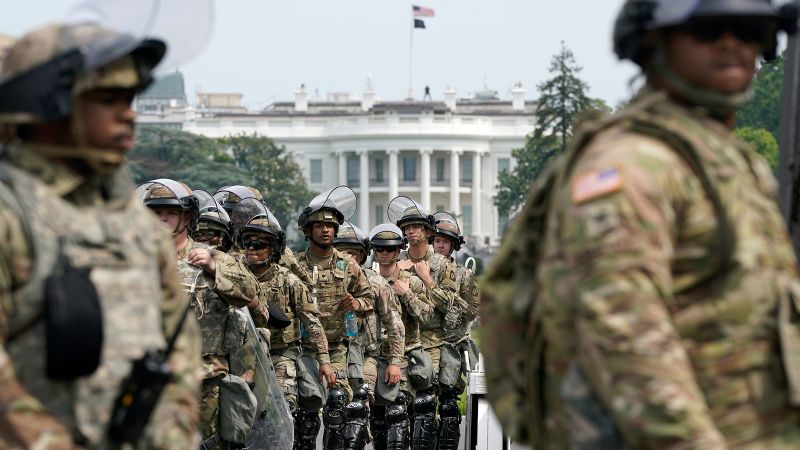In a recent development, President Donald Trump reignited discussions surrounding the possible federal takeover of Washington, D.C., after a former employee of the Department of Government Efficiency was assaulted in an attempted carjacking. The incident sparked a conversation about safety and crime rates in the U.S. capital, and Trump’s subsequent comments suggested a drastic measure that would see the federal government increase its control over local law enforcement agencies.
During a press briefing, Trump indicated that he was contemplating the deployment of the National Guard in response to the rising concerns over crime in the area, specifically mentioning the possibility of federalizing the D.C. Police Department. This wave of statements from the President raises significant questions about law enforcement procedures, local governance, and the extent of presidential powers, especially in the uniquely governed Washington, D.C., which possesses a different legal framework than U.S. states.
Following Trump’s statements about potential federal intervention, representatives from the White House confirmed that there would be an increase in federal law enforcement presence in D.C., coinciding with actions that began that Thursday night. The mobilization will see personnel from various agencies, including the U.S. Capitol Police, the FBI, the U.S. Marshals Service, and the Drug Enforcement Administration participating. However, it remains unclear whether the National Guard will play a role in this immediate response.
Experts have weighed in on the implications of Trump’s remarks, emphasizing the legal challenges he would face in attempting to federalize the District. Constitutionally, the U.S. Congress has the authority to govern D.C., albeit some of that power was transferred to local government entities with the implementation of Home Rule in 1973. This legislation allowed for a local government structure, which includes an elected mayor and city council, meaning that any attempt to remove local control would necessitate Congressional approval—a process that could become a significant hurdle for the Trump administration.
Furthermore, Trump mentioned his administration’s intention to explore overturning the Home Rule, with claims that “the lawyers are already studying it.” Constitutional law experts like Jill Hasday, affiliated with the University of Minnesota Law School, insist that the complete elimination of local governance would be unprecedented and stress that repealing the Home Rule Act would require bipartisan cooperation in Congress.
Adding to the complexity of this situation is the unique structure of the D.C. National Guard, which operates under direct presidential authority rather than the governors found in the states. This unusual structure allows the President to command troops more easily and potentially deploy them in support of law enforcement efforts without requiring a state governor’s request.
However, legal scholars like William Banks underline that any involvement of the National Guard in law enforcement needs to be performed within constitutional boundaries, emphasizing that they do not possess expanded powers over local police unless specific legal frameworks, like the Insurrection Act, are invoked. This caution is echoed by other experts who argue that the tasks typically assigned to the National Guard should remain within the purview of local police, reiterating the importance of civilian law enforcement.
As Trump’s administration contemplates these measures, residents of D.C. are reminded of the tense climate experienced during the protests following the death of George Floyd in 2020 when a multitude of federal law enforcement agencies were called to the streets, causing significant outrage and concern among locals. This historical context underscores the sensitivities surrounding federal involvement in local governance and law enforcement, which carries implications for public perception and local relations.
Although crime rates have been a focal point of Trump’s narrative regarding D.C., a preliminary year-to-date crime comparison indicates that crime levels for 2025 are actually trending lower than those from the previous year, contradicting claims of a rampant crime wave. The concerns espoused by Trump regarding public safety do not appear to currently match the realities as indicated by law enforcement data, leading experts to call into question the necessity of federal intervention at this juncture.
Public sentiment generally favors local law enforcement conducted by those familiar with the community, reinforcing the importance of local police as representatives of their jurisdictions. The prospect of federal troops patrolling the capital should be approached with caution, considering both historical implications and current public safety assessments. As discussions continue, the intricacies of governance, law enforcement autonomy, and local versus federal powers remain at the forefront of political discourse regarding Washington, D.C.











